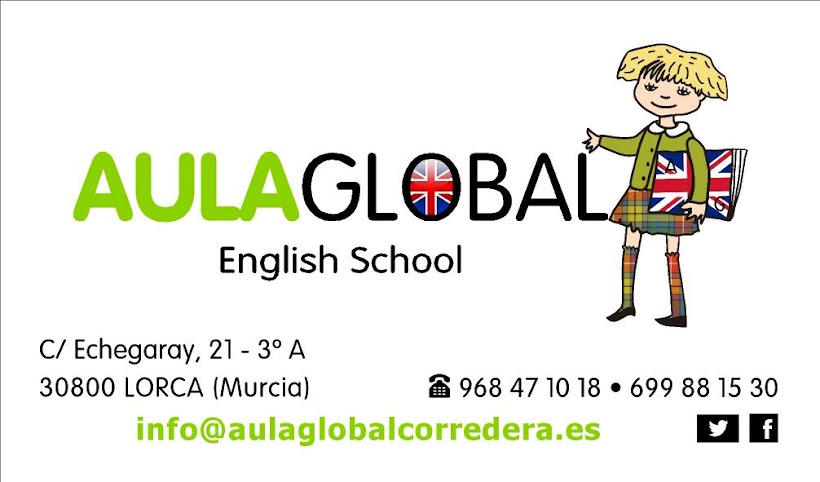Seguro que ya sabes que el inglés es la lengua más hablada del mundo pero hay muchas cosas sobre el inglés que desconoces y te va a llamar a atención. Mira que fun facts ( curiosidades) tenemos para tí:
1) El inglés es el idioma con mayor presencia internacional. En 2015 había 67 Estados soberanos y 27 territorios donde el inglés era la lengua oficial. Además, es el idioma común de muchas profesiones a nivel mundial, como en el mundo de los negocios y en el de la aviación.
2) Solo hay dos palabras en inglés que terminan en "-gry": "angry" y "hungry". Quizá sea esa la razón por la que muchos estudiantes de inglés las confunden, así que... ¡cuidado!: estar enfadado y estar hambriento definitivamente no son lo mismo.
3) El alfabeto inglés tiene solo 26 letras... pero 44 sonidos diferentes. Esa es una de las razones por las que los españoles tenemos tantos problemas con la pronunciación, ya que estamos acostumbrados a que las palabras se lean "igual que se escriben".
4) La terminación en -ough es un dolor de cabeza para los estudiantes de inglés... y es que se pronuncia de hasta 9 maneras diferentes. Ouch.
5) Y hablando de dificultades de pronunciación, en inglés existen palabras que se pronuncian exactamente igual, pero no tienen ninguna letra en común. Es el caso de ewe y you o de eye y I. Lo que nos recuerda a este chiste... (Si al leerlo en voz alta lo pillas, ¡es que vas por buen camino!)
- What's a deer with no eyes?
- No-eye deer.
6) Y si aún no te has cansado de la pronunciación, debes saber que el trabalenguas (tongue twister) más difícil del idioma inglés es "The sixth sick sheik's sixth sheep's sick". Si aún no te atreves con él, aquí tienes un par más para ir calentando la lengua:
The thirty-three thieves thought that they thrilled the throne throughout Thursday.
Can you can a can as a canner can can a can?
I wish to wish the wish you wish to wish, but if you wish the wish the witch wishes, I won't wish the wish you wish to wish.
7) Si te cuesta aprender vocabulario nuevo, no tienes por qué desesperarte: se calcula que un hablante inglés normal usa las mismas 400 palabras el 80 % del tiempo.
8) Si quieres seguir aprendiendo palabras nuevas, puedes empezar por marcarte como objetivo las 2.800 que usa en su día a día un inglés promedio. Sin embargo, en sus diccionarios hay unas 350.000 oficialmente reconocidas y se calcula que la cifra total es de aproximadamente un millón.
9) La frase más corta que se puede escribir en inglés es I am. Sujeto y predicado con sentido completo en solo tres letras.
10) Entre los números del 1 al 999 no encontrarás ni una sola vez la letra "a". (Si eres insomne y te has aburrido de contar ovejas, ¡puedes hacer la prueba!).
¿Te ha gustado el post? ¿Quieres aprende o mejorar tu inglés? Tu centro en Lorca es AULAGLOBAL English School. Ingles para todas las edades y a todos los niveles



